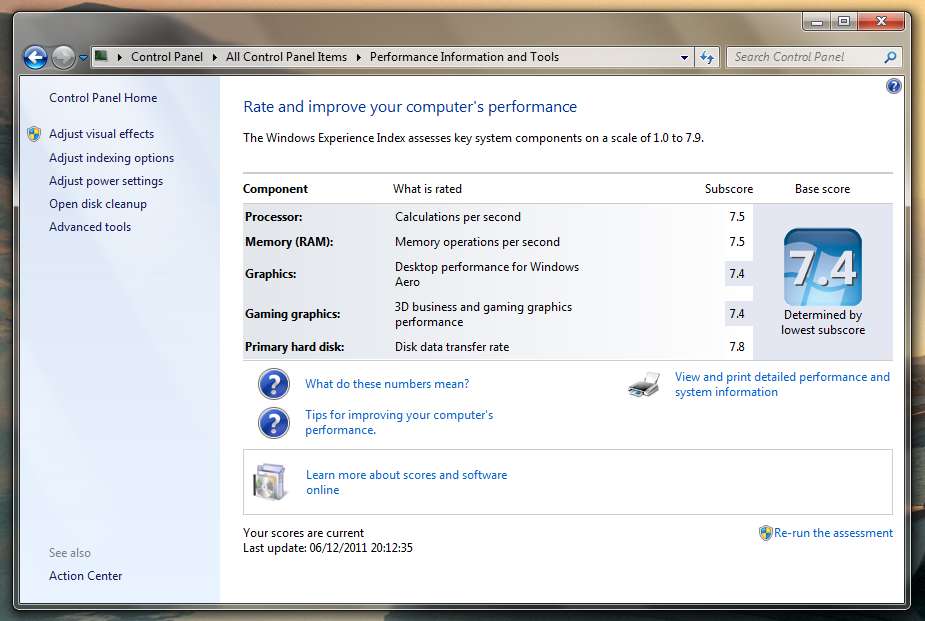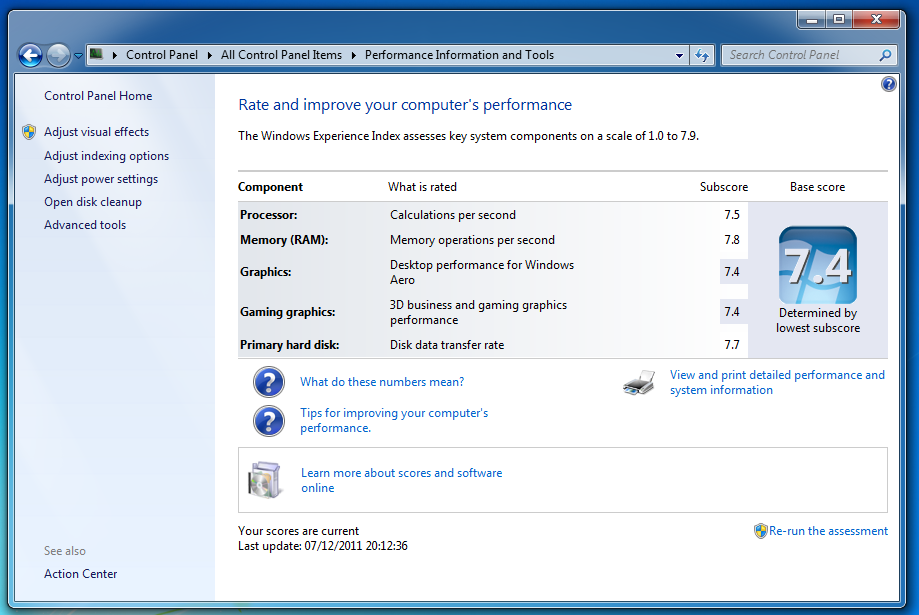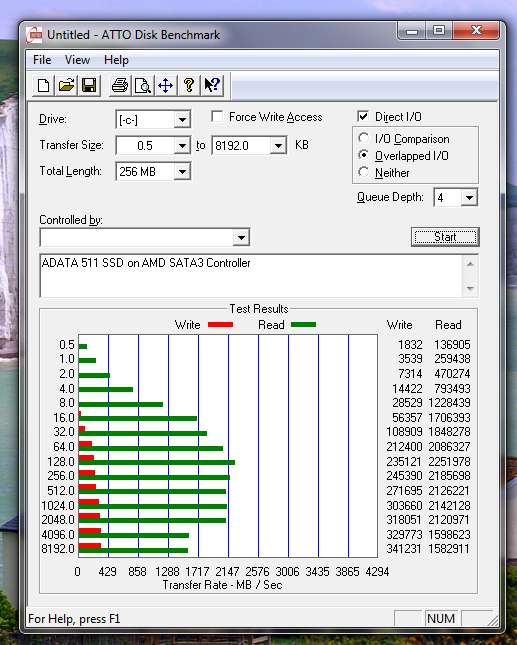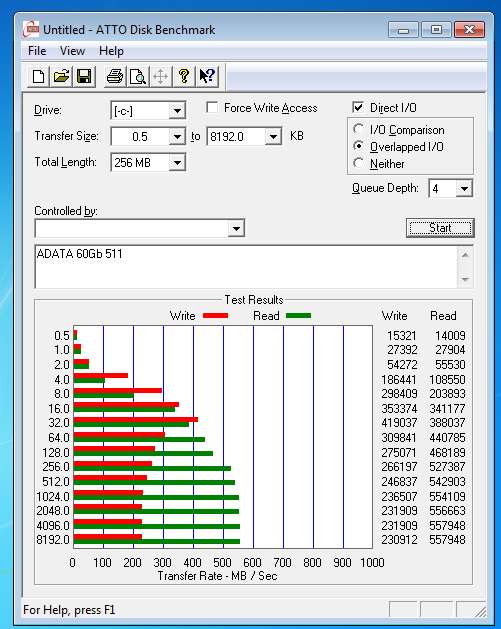As anyone who frequents this forum on a regular basis will know, I have been using AMD systems for well over ten years and have always been really pleased with the way things work. But recently, I have come across a few situations where I have encountered issues and, on approaching different hardware manufacturer's, have been told: "Sorry, we don't have an AMD system for testing". I have to say that I have found this response more than a little surprising. Alright, I know that Intel dominates the home PC market but, there are enough AMD user's to surely warrant a better approach than this.
Things came to a head recently when I purchased a couple of SSD's and was bitterly dissappointed at the write speeds that I was able to get from them which were way below those claimed in the advertising literature. I have now spent two months, trying to get an answer as to why this is happening and, once again, I was told that they didn't have an AMD system for testing. Since I got in touch with them they have now got a Gigabyte GA-990FXA-UD5 for testing, but I still haven't had any real answers as to the situation.
Then AMD's Bulldozer FX processors came along and the reviews were less than flattering so, along with a raft of other AMD users, I have had to think what my next steps will be, regarding upgrading my current system or switching platforms. Trying to make this choice is not easy, as the cost of switching motherboards and CPU does not come cheap but the cost of upgrading to a Bulldozer FX for the reported little gains over my current X6 1090T makes this even more of a challenge and is a similar situation that you may well be facing.
Now, I have to admit that I am in a luckier position than most, as I was presented with the chance of getting an Intel i5 2500k CPU without actually spending any money, from a local PC company that I helped out. So, I decided that this opportunity was too good a chance to pass up and I grabbed it with both hands. Gigabyte have generously provided a motherboard, the GA-Z68X-UD3P-B3 so I am now in a position to offer some real, honest and practicle advice and comparaisons between AMD and Intel based systems.
For my testing I have tried to build the two systems with as much closeness of the hardware as possible and listed here are the two system specifications:
AMDMotherboard: GA-990FXA-UD5
Motherboard BIOS: F6
Processor: Phenom ii X6 1090T
RAM: Corsair Vengeance Black LP CML16GX3M4A1600C9 2x4GB Modules
Graphic Card: Gigabyte ATI 6770 (GV-R677UD-1GD)
SSD: ADATA S511 60GB
HDD: Western Digital Caviar Black 640GB SATA3
Monitor: LG L194WT
Mouse: Microsoft Intellimouse Optical USB
Keyboard: Microsoft Digital Media Pro
IntelMotherboard: GA-Z68X-UD3P-B3
Motherboard BIOS: F7
Processor:i5 2500k
RAM: Corsair Vengeance Black LP CML16GX3M4A1600C9 2x4GB Modules
Graphic Card: Gigabyte ATI 6770 (GV-R677UD-1GD)
SSD: ADATA S511 60GB
HDD: Western Digital Caviar Black 640GB SATA3
Monitor: LG L194WT
Mouse: Microsoft Intellimouse Optical USB
Keyboard: Microsoft Digital Media Pro
Both systems are running Windows 7 Ultimate 64 Bit (Retail)
Then only real difference with the two systems are the PSU's that I am using. The AMD System is powered by a 620 Watt Corsair Modular unit and the Intel is being powered by a Gigabyte Odin 800 Watt Modular unit.
I am not planning to go through overclocking on either system and both will be tested at default settings. The only exception to this will be the RAM which I will be running at its rated speed of 1600MHz on both boards.
This article is not so much about benchmarking figures, although I will be providing some, but more about how I, a long time AMD user, find the switch to building an Intel system and if I can actually see or feel any real difference in the day-to-day use that I put my system through. Generally I use my PC for Music production using Cubase and Video and photo editing using Adobe Creative Suite 5. I also use my PC for web browsing and general programmes such as Microsoft Office, DVD/CD burning, e-mail and the such like.
When I first planned this item, the Phenom ii Processors were still readily available but as some of you may have read AMD is dropping these and they are becoming harder to find. So sadly this article is not about a direct comparison with a Bulldozer processor but hopefully in the future I will be able to update things when I finally get hold of one.
So, let's look at the first argument that comes up whenever you think about putting a system together, cost. It used to be the case that there was a vast difference between an AMD system and an Intel one. Is that still the case?
Well, I have to say that I was actually surprised when I did the maths on this one and the cost for putting together a basic system of CPU, RAM, Motherboard, Graphic Card, PSU and a single SSD actually worked out as follows:

If you swapped the cost of the Phenomii CPU that I already have for the FX8120 Processor then the AMD system would actually cost £626 so it would be slightly more expensive. This is really not what I had expected. The cost for a different Intel motherboard would have bought the two closer together but the reality is, that at the present time, there is really nothing to choose between the cost of the two platforms when it comes to putting a mid to high end new system together.
I have added a couple of extra HDD's to both systems along with the monitors, keyboards, mice and the Operating System but I already own these so were not included in the costs. Obviously, these would have to be taken into account if you are putting a new system together rather than upgrading or switching platforms.
Putting the two systems together was relatively painless although, as I haven't put an Intel system together for a long time, I did have to double check what I was doing at each stage. The only real difference I encountered with the hardware was with the CPU and how it is mounted and extra care needs to be taken on the Intel platform so as to avoid damage to the pins in the CPU socket, but again, this could have been due to my lack of experience.
Once I had the two systems built I obviously needed to install the OS, in this case Windows7 Ultimate. I always use the USB installation method for doing this and have found it a very quick and painless method. I timed the installation process of both systems so that I could compare how long they took. To do this I decided that it would be best to get to the stage in the installation process where things actually are being installed to the drive. So, my timings started after I had set up the drive partition and ended when I was first able to use the PC to install the motherboard drivers.
Using my trusty electronic timer I hit the next button in the Windows installer and allowed the installation to go ahead without further input from myself. The results were a little surprising as I hadn't expected any real difference at this stage but I was wrong.
Installing Windows7 took:-
AMD Platform - 8 minutes 32 seconds
Intel Platform - 6 minutes 14 secondsSo it was well over 2 minutes faster on the Intel PC than on AMD.
Once I had installed the OS and the motherboard drivers I thought I would run the Windows Experience Index (WEI). Personally I don't hold much store in this but I did think it would be interesting to see what figures were returned, especially as the GPU, RAM, and SSD in both system were identical. The results were as follows:
AMD Intel
Intel
As you can see the WEI is the same for the CPU's and the GPU's but different when it comes to Memory operations and Primary Hard Disk.
The difference between platforms is even more noticeable when I ran ATTO to benchmark the SSD's
AMD Intel
Intel
So, what do I make of this so far?
Well, having been running AMD systems for at least 10 years, I am obviously comfortable with the platform and believe I know how to get the best from the system. This is not the case with the Intel platform and I think it will take me a little while to understand exactly where the differences lie.
When it came to putting together the two systems, there really wasn't anything to choose between them. Yes, I did struggle a bit more with the Intel set-up but this was due to lack of experience rather than any real difficulty and if you are building your first system then they are very similar and would be an equal challenge.
Loathe as I am to say this, I have to admit that my initial reaction is that the Intel system does seem to be faster and more responsive and everything seems to work as I would expect. I'm not sure if this is a reality and further testing and hands-on experience should, I hope, prove if this is actually the case.
to be continued.....